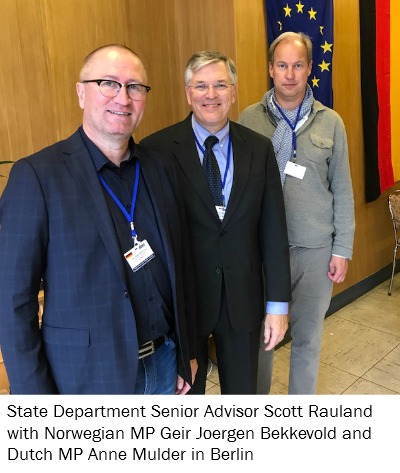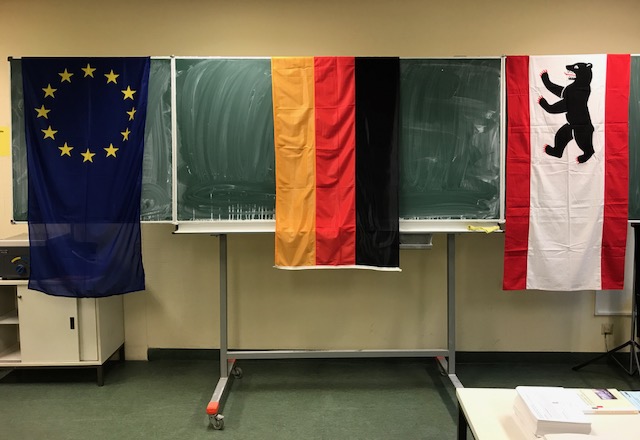By Scott Rauland,
State Department Senior Advisor
On September 24, 2017, over 50 parliamentarians and staff from 25 countries fanned out across Germany as part of the OSCE Parliamentary Assembly (OSCE PA) team that was invited to observe German parliamentary elections. This marked the first time that an OSCE PA Election Observation Mission (EOM) has deployed to Germany. Although the OSCE PA does not have the resources to observe every election, the organization tries to be present in major elections that are politically important. I was pleased to represent the U.S. in that effort as the State Department’s Senior Advisor at the U.S. Helsinki Commission.
Members of the OSCE PA team were briefed by German government officials, representatives of the major political parties, political analysts, and other experts in the two days leading up to the election. On election day, members of the OSCE PA observation mission visited over 300 polling stations in Berlin, Munich, Hamburg, Cologne and Duesseldorf, just a fraction of the more than 90,000 polling stations located in Germany in 299 constituencies.
In a press conference held on September 25, George Tsereteli, the Special Coordinator for the EOM, noted, “Germany has once again demonstrated that its commitment to democracy is undiminished. Highly competitive and well-run, these elections were an opportunity for voters to express their choice in a process that benefits from and is based on broad trust among society.” One sign of that trust was the almost complete absence of election observers from any of the participating political parties at the 14 polling stations my team visited in Berlin – all six major parties seemed to be relatively confident that the elections were being administered fairly.
While the OSCE PA team was in Germany at the invitation of the German government, and although the public has the right to observe the voting process in Germany, my observation team was denied access to one of the polling stations we had hoped to observe. That incident was thankfully the exception amongst the 300 polling stations visited by the OSCE PA EOM, but was a reminder that efforts to promote transparency in the conduct of elections must be ongoing, even in countries where the commitment to democratic elections is high.
With more than 4,800 candidates running, and numerous strong political parties, Germany’s 61 million voters had a wide range of options to choose from. Women represented slightly less than 30 per cent of candidates, but played a prominent role in leadership positions in parties’ campaigns.
political parties, Germany’s 61 million voters had a wide range of options to choose from. Women represented slightly less than 30 per cent of candidates, but played a prominent role in leadership positions in parties’ campaigns.
“This was the first time we’ve deployed a full observer team to Germany, and the welcome of our mission by all German officials and political parties that we met is a positive signal that the country is ready to pay continued attention to democratic processes,” said EOM Head of Mission Isabel Santos. “Changing political cultures in many countries and new challenges such as cyber attacks mean that we must all dedicate time and effort to preserving democratic systems.”



